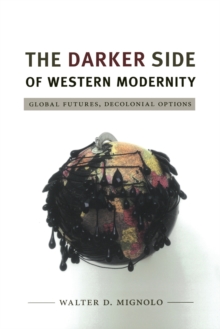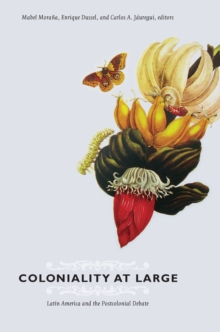
Spiritual Mestizaje : Religion, Gender, Race, and Nation in Contemporary Chicana Narrative PDF
by Delgadillo Theresa Delgadillo
Part of the Latin America otherwise series
Please note: eBooks can only be purchased with a UK issued credit card and all our eBooks (ePub and PDF) are DRM protected.
Description
Gloria Anzaldua's narrative and theoretical innovations, particularly her concept of mestiza consciousness, have influenced critical thinking about colonialism, gender, history, language, religion, sexuality, spirituality, and subjectivity. Yet Anzaldua's theory of spiritual mestizaje has not been extensively studied until now. Taking up that task, Theresa Delgadillo reveals spiritual mestizaje as central to the queer feminist Chicana theorist's life and thought, and as a critical framework for interpreting contemporary Chicana literary and visual narratives. First mentioned by Anzaldua in her pioneering book Borderlands/La Frontera, spiritual mestizaje is a transformative process of excavating bodily memory to develop a radical, sustained critique of oppression and renew one's relation to the sacred. Delgadillo analyzes the role of spiritual mestizaje in Anzaldua's work and in relation to other forms of spirituality and theories of oppression. Illuminating the ways that contemporary Chicana narratives visualize, imagine, and enact Anzaldua's theory and method of spiritual mestizaje, Delgadillo interprets novels, memoir, and documentaries. Her critical reading of literary and visual technologies demonstrates how Chicanas challenge normative categories of gender, sexuality, nation, and race by depicting alternative visions of spirituality.
Information
-
Download - Immediately Available
- Format:PDF
- Pages:296 pages
- Publisher:Duke University Press
- Publication Date:08/08/2011
- Category:
- ISBN:9780822394365
Information
-
Download - Immediately Available
- Format:PDF
- Pages:296 pages
- Publisher:Duke University Press
- Publication Date:08/08/2011
- Category:
- ISBN:9780822394365










